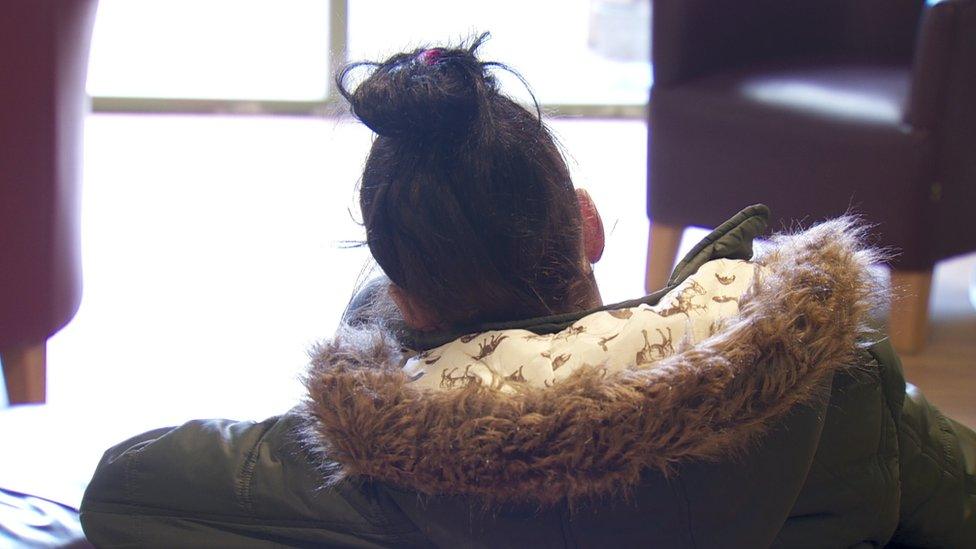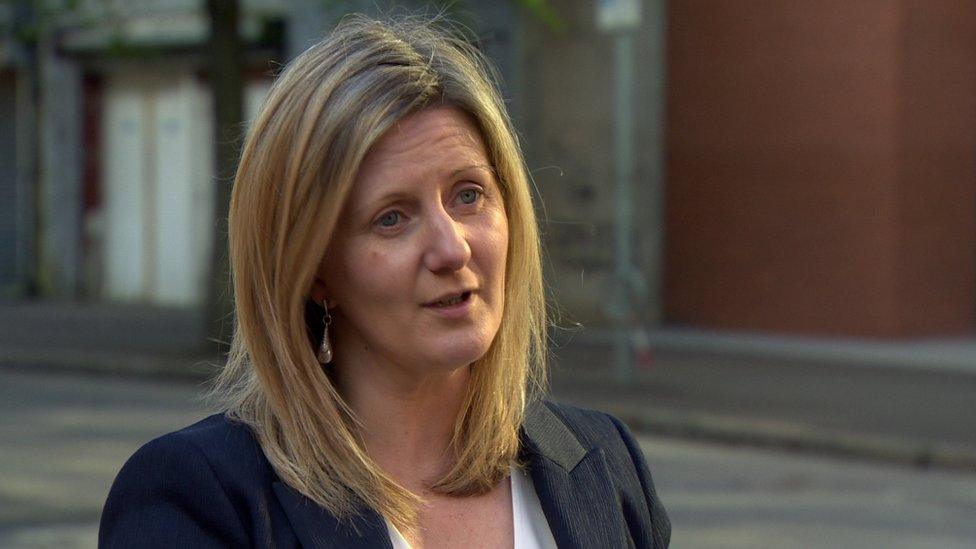Stormont budget 'putting families at homelessness risk'
- Published

Funding that helps provide temporary accommodation is due to end on 1 April
Hundreds of families are at potential risk of homelessness unless Stormont reviews its draft budget, the Northern Ireland Housing Executive (NIHE) has warned.
NIHE received Northern Ireland Executive funding of just under £10m to help provide temporary accommodation during the pandemic.
But that is due to end on 1 April.
NIHE is warning that 900 units of temporary accommodation are under immediate threat of closure.
Northern Ireland's power-sharing executive collapsed last week after the resignation of First Minister Paul Givan, meaning ministers can not meet to agree a budget.
Stormont departments will still be able to distribute cash but, will not be able to plan ahead for the next three years.
"Of immediate concern is the removal of funding from the draft budget which had previously been available to deal with the effects of Covid-19 - a pandemic which continues to profoundly impact on homeless provision and the wider housing system," NIHE chief executive Grainia Long said.

The Housing Executive's Grainia Long said funding is needed urgently
"This will leave a lasting and, in some cases, permanent effect."
She added: "Without the continuation of the Covid-19 funding, we will be forced to remove almost 900 units of temporary accommodation, within weeks, and potentially put on hold our plans for measures aimed at preventing homelessness."

'It doesn't bear thinking about'
One woman, who has been homeless for a year, spoke to BBC News NI.
She fled domestic violence and she said temporary accommodation saved her life.
"My life was at its worst. I'd lost somebody very, very close that nobody can replace.
"I lost everything and I had no support from family and friends, so I was on my own and it was just like a nightmare."
Should she lose her place, the only alternative she can imagine is the streets, she said.
"If this were to close, it doesn't bear thinking about."

Demand for temporary accommodation has more than trebled in the last two years according to NIHE, and has continued to increase further during 2021/22.
NIHE estimate that by the end of the current financial year about 6,100 people will be living in 4,250 units of temporary accommodation.
It is now seeing "the wider health and wellbeing impacts of Covid-19, worsening mental health issues, addiction and rising unemployment".
Ms Long said: "This has been especially prevalent in our engagement with those who have found themselves homeless, those in housing need and those struggling with housing costs.
"A failure to fund homelessness, supporting accommodation services and the supply of decent housing will contribute to increased demands being placed on health budgets immediately, and in the longer term".
Related topics
- Published5 May 2021
